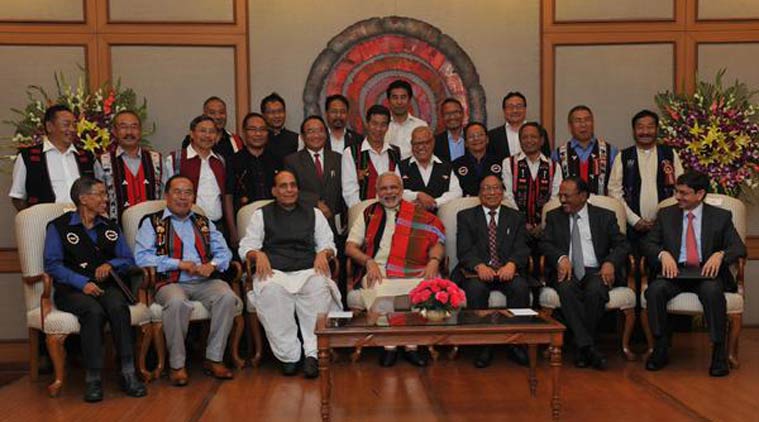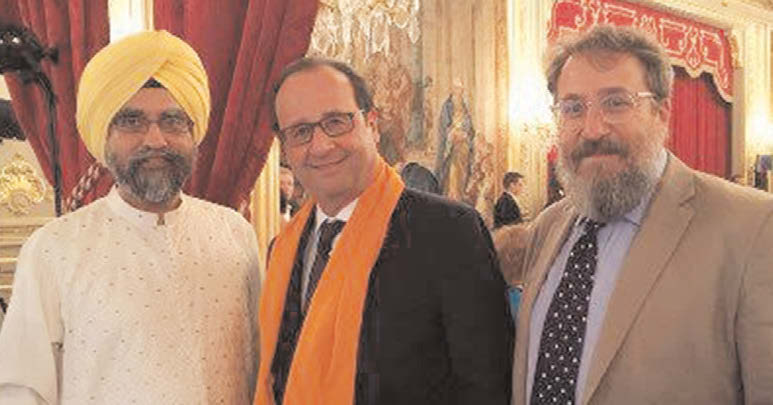
NEW DELHI (TIP): With India signing a historic peace accord with the rebel NSCN (IM) on Monday, August 3, curtain has come down on the oldest insurgency movement in the country which saw bloody clashes between the Army and Naga insurgents.
The accord, signed in the presence of Indian Prime Minister Narendra Modi and the chairman of the NSCN(IM) T Muivah, promises a return to normalcy in the northeastern state, which had remained on the edge since the Independence.
Besides Modi, Home Minister Rajnath Singh and National Security Advisor Ajit Doval were present at the signing ceremony and from the other side, 19 top Naga leaders from different organizations and civil society groups were present.
While the terms of the accord have not been announced, it has been made clear that Muivah did not insist on the demand for the creation of greater Nagaland by clubbing all Naga-dominated pockets scattered across Manipur, Arunachal Pradesh and Assam. The breakthrough could be about an agreement over the degree of autonomy that Nagas outside Nagaland will have.
Modi termed the accord a “landmark” and welcomed it saying, “We will not only try to heal wounds and resolve problems, but also be your partner as you restore your pride and prestige” and added that “today we mark not merely the end of a problem but the beginning of a new future “.
Muivah said the government and Naga were entering a “new relationship”. While Muivah promised that Nagas would honor the accord, he acknowledged that challenges still remained.
The agreement, however, does not ensure complete peace in the region because of the rebel NSCN (Khaplang group), which has remained active in the recent past. It is believed to be based across the border in Myanmar. It was this faction which was responsible for attacks on Indian security forces which had resulted in an Indian army cross-border action to destroy their camps in Myanmar. The faction, however, does not enjoy popular support as was being enjoyed by the group led by Muivah.
Experts say that the importance of the development lies in the fact that the insurgency has been an obstacle for the efforts to deepen engagement with Myanmar and the larger “Look East Policy”.
The first peace talks with the Nagas were initiated during Narasimha Rao’s tenure, and continued during the Vajpayee regime. The accord would provide relief to the region which had been caught between the state, security forces and the insurgents. The real test would be now to make this agreement work on the ground.





Be the first to comment